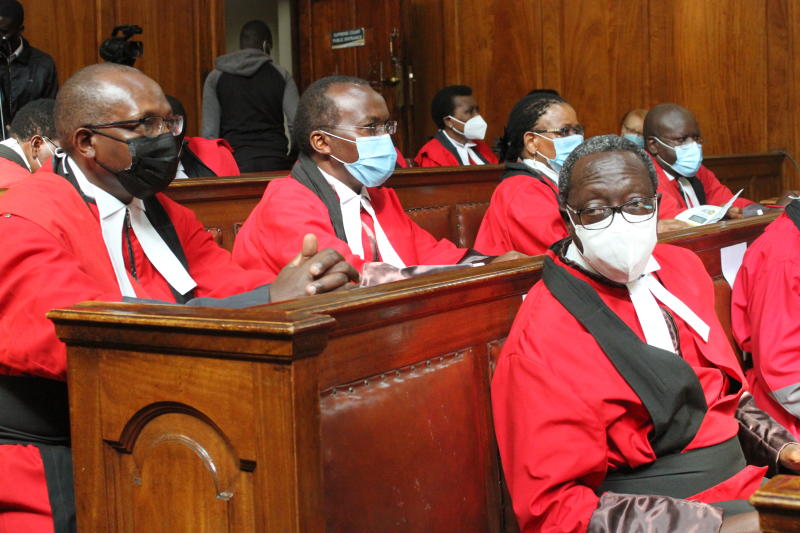
A section of Judges follow proceedings at the Supreme court on Monday,January 11,2021 during a retirement ceremony for Chief Justice David Maraga. [Collins Kweyu,Standard]
In the Kenyan criminal justice system, the role of the victim in trials has traditionally been very minimal and limited. To begin with, criminal justice has always been viewed as an attempt by the State to rein in bad characters on behalf of the public. In many instances, cases are listed as "Republic versus the accused". The philosophical reason behind this is the belief that criminal law should serve the interests of society and not the individual victim.